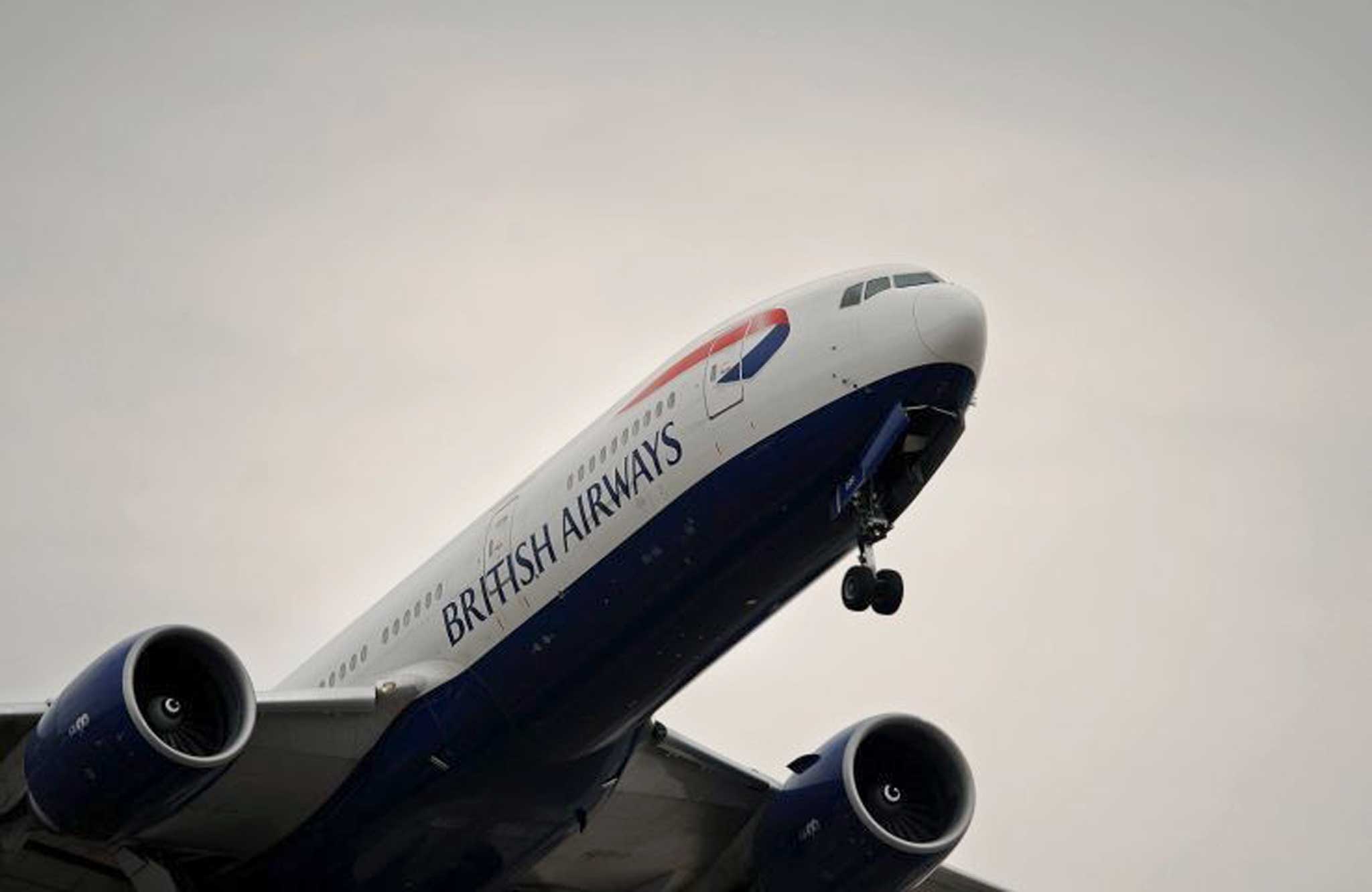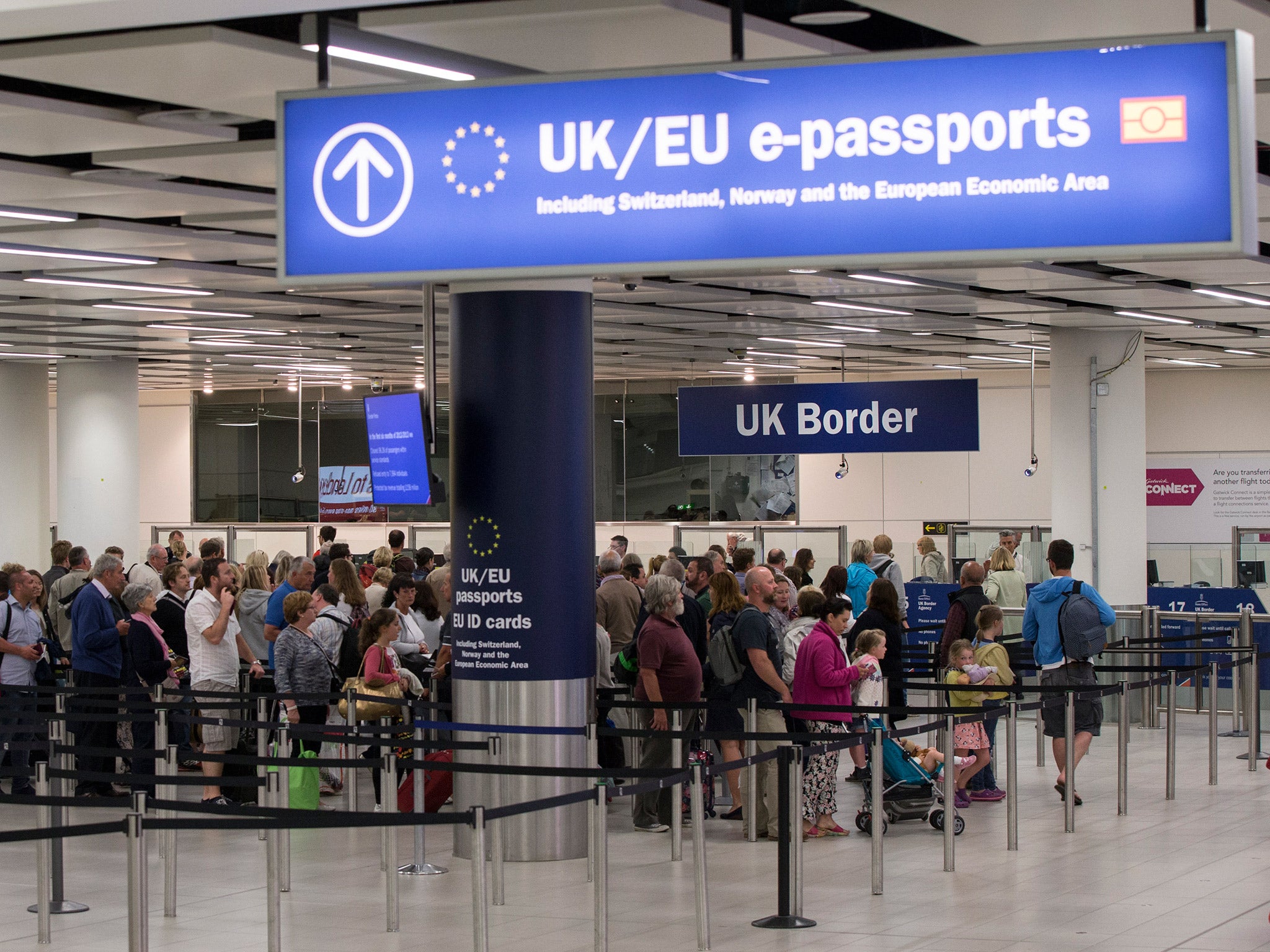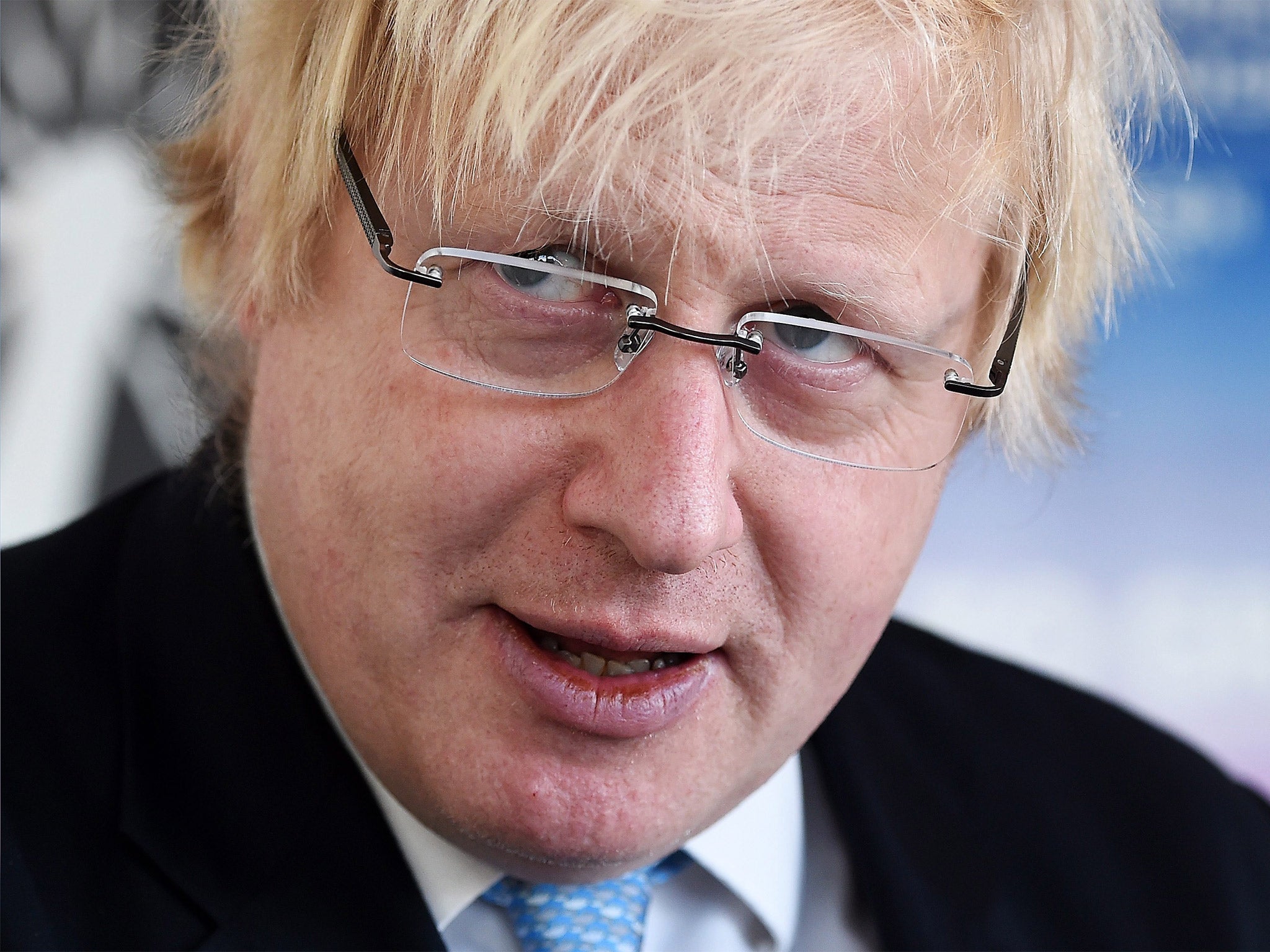EU referendum: What will happen to UK immigration if there's Brexit?
The big EU questions: The EU debate so far has been characterised by bias, distortion and exaggeration. So until the end of the referendum, we are running a series of question-and-answer features that will try to explain the most important issues in a detailed, dispassionate way

Your support helps us to tell the story
From reproductive rights to climate change to Big Tech, The Independent is on the ground when the story is developing. Whether it's investigating the financials of Elon Musk's pro-Trump PAC or producing our latest documentary, 'The A Word', which shines a light on the American women fighting for reproductive rights, we know how important it is to parse out the facts from the messaging.
At such a critical moment in US history, we need reporters on the ground. Your donation allows us to keep sending journalists to speak to both sides of the story.
The Independent is trusted by Americans across the entire political spectrum. And unlike many other quality news outlets, we choose not to lock Americans out of our reporting and analysis with paywalls. We believe quality journalism should be available to everyone, paid for by those who can afford it.
Your support makes all the difference.Freedom of movement, or the right to migrate between EU countries, hardly figured in the UK’s first European referendum in 1975. Why is is such a key issue this time?
Numbers, sheer numbers. Until Eastern European countries joined the EU in 2004, there was no large-scale migration to Britain from other EU countries, except Ireland. According to the most recent official figures, there are now 3,300,000 EU nationals living in Britain – up by 2,000,000 since 2003. There are 2,100,000 EU nationals working here.
According to the Office for National Statistics, 257,000 EU migrants arrived in the 12 months to September 2015 – far more than the Government had expected.
Britain can restrict migration from non-EU countries but is bound by European treaties and European law to accept migrants from other member states. Hence, the Brexiteers’ claim that we have “lost control of our borders” and can only regain control of them if we leave the EU.
Where are all these people coming from? And why?
The great majority come from the former communist bloc countries in Eastern Europe, such as Poland, the Baltic States, Romania and Slovakia. In the past couple of years, since the beginning of the eurozone crisis, there has also been an influx from Spain, Portugal and Greece. It should also be remembered, that there are more than 300,000 French citizens living in Britain – one in 10 of the EU total outside of France – mostly young, mostly very well educated and mostly living in the London area.
Their reasons for coming vary from economic necessity and the relatively high wages for menial work in Britain (in the case of migrants from the eastern and southern countries) and a desire for adventure, advancement or improved English (the French, Germans and others).
Unlike migrants from the Commonwealth, the great majority of EU migrants say they plan to go home after a few years.
Why are they all coming to Britain? Why don’t they go to France or Germany?
They don’t all come to Britain. Many go to other, relatively rich member states, such as Germany and Sweden but also to Ireland. Britain, however, has one of the most vibrant economies in Europe and plenty of job opportunities. English is a widely spoken language in Eastern Europe.

There is also another reason why Britain has taken, proportionally, more migrants from Eastern Europe than other countries. In 2004, when the ex-communist countries joined, other member states imposed “transitional periods” when migration from the east would be limited. In Britain, the Blair government decided that uncontrolled emigration from Eastern Europe would benefit the UK economy.
The Blair government estimated that there would be a net inflow of 13,000 people a year. In the first eight years, to 2012, the net total was 423,000 – or 50,000 a year.
Why does the EU insist on the right of free movement? Is this not a principle which is becoming dangerous to sustain?
Freedom of movement of people is one of the four principles on which the EU single market is founded. The others are free movement of goods, capital and services.
Together, they offer a balance of opportunities and advantages between richer and poorer states, between thriving states and struggling states. If you challenge one, you challenge all, as David Cameron found when he asked other EU governments to make freedom of movement less free.
In the earliest days of the Common Market, the principle was relatively uncontroversial and there were no large flows of migration. The admission of the poorer, ex-communist countries changed all that. They see no reason why they should accept free trade with more competitive, richer states but lose the right for their younger people to work abroad.
Are there any grounds on which an EU state can prevent another European citizen from visiting or from migrating?
Yes, there are. In principle any EU citizen has the right to seek and take work in any member state and have the same tax regime and social benefits as anyone else. Member states are, however, allowed to refuse entry on the grounds of “public policy, public security or public health”. A known German criminal could not demand the right to come to Britain to compete with our own criminals.
There is also another restriction. Freedom of movement does not apply to jobs in the “public service”.
Who benefits and who loses from EU migration to the UK?
This is where the arguments become complicated. Some economists argue that the migrants have produced a net gain to Britain, boosting population, economic growth and tax income. Brexiteers on the other hand say that they have pushed down wages and strained public services.

Boris Johnson and other Eurosceptic Tories say that “uncontrolled immigration is forcing down wages for British workers”. Tory Brexiteers are, it seems, enthusiastically on the side of the workers.
The truth of the competing claims is hard to establish. Surveys suggest that there has been no obvious effect on wages in areas of the UK with the largest EU migrant populations. Other surveys suggest that wages have been marginally reduced for lower-skilled workers, such as shop assistants, bar staff and carers.
Will 12,000,000 Turks arrive in the UK if we stay in the EU?
The Daily Express says so but that would mean that one in seven Turks emigrating to Britain – an absurd figure. In any case, Turkey’s chance of joining the EU are receding rather than enlarging under the present authoritarian regime in Ankara.
Will free movement survive in the EU of the future?
Yes, but there are likely to be new restrictions on so-called “welfare tourism” and certainly long transitional periods for new members, if any, such as Turkey and Serbia.
What would the EU migrant situation be if we left?
Good question. It all depends on the terms on which we leave. If we want to have continuing access to the single market, we will, like Norway, have to allow free movement for EU nationals even if we are no longer in the EU.
We can only “gain control of our borders” if we leave the single market and its barrier free access to 500,000,000 consumers. The Brexiteers have been obliged during the campaign to admit this inconvenient truth. They now say that Britain would do better with a looser trading relationship with the EU and “chosen” EU migration. Many business leaders and economist disagree.
Join our commenting forum
Join thought-provoking conversations, follow other Independent readers and see their replies
Comments